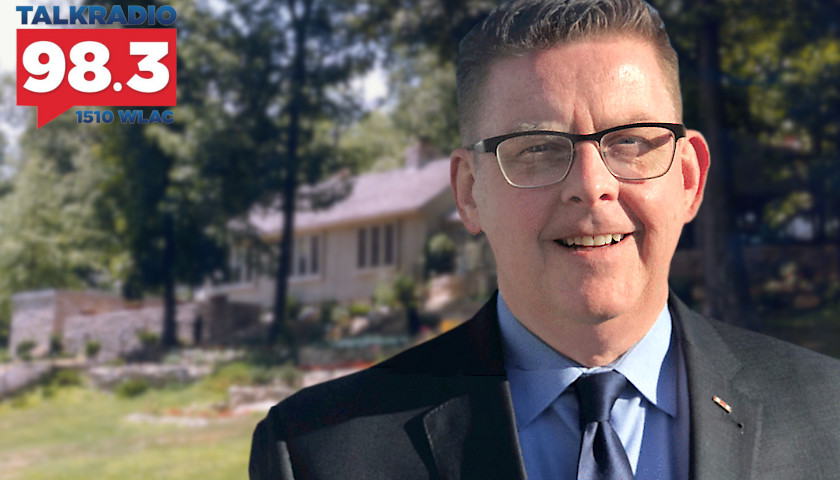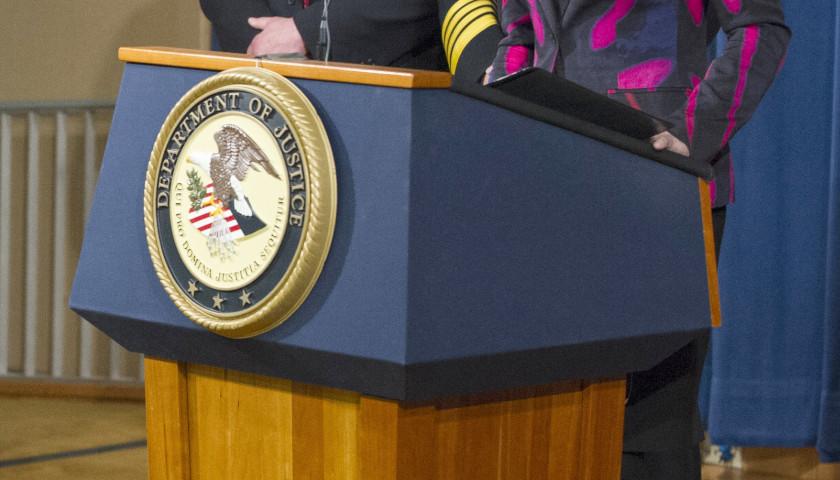On Tuesday’s Tennessee Star Report with Michael Patrick Leahy – broadcast on Nashville’s Talk Radio 98.3 and 1510 WLAC weekdays from 5:00 am to 8:00 am – Michael Patrick Leahy spoke with weekly special guest and former Breitbart colleague, Iraq war veteran and current Army Reserve Sergeant Neil McCabe about the President Trump’s recent pull out of the Taliban meeting.
The men reflected about how the United States has technically been in the war since 2001 and potentially before 9-11 and what pulling out would mean for the Afghanistan economy. They also noted that Afghanistan is a country rich in minerals and resources. “There are probably trillions of dollars worth of minerals in Afghanistan. The US geological survey did a study maybe four or five years ago. There is gold. There’s copper. There’s uranium,” stated McCabe.
Leahy: If it’s Tuesday and it’s 6:00 a.m., it’s time for Neil McCabe; Washington correspondent for One America News Network. Welcome, Neil!
McCabe: Michael Patrick so good to talk to you this morning. (Leahy chuckles)
Leahy: Two Irishmen just talking politics. (McCabe chuckles) What could be better?
McCabe: Not much of stretch actually. (Giggles)
Leahy: For those of you just tuning in. Neil McCabe and I go way back. Friends and colleagues at Breitbart. We worked together with the late great Pat Cadell on some polling issues in the 2016 election. Neil probably has the clearest view of what’s really going in Washington, D.C. of any network correspondent.
Neil, I wanted to throw this out to you. And now, apparently, Donald Trump is just awful. The latest reason he’s awful according to the mainstream media is that he was going to have a discussion with the Taliban at Camp David and then he broke it off. What’s wrong with that kind of negotiation?
McCabe: Well obviously there was a lot of pressure to do that technique where you declare victory and withdraw. And its sort of what we did in Korea and it’s what we attempted to do in Vietnam but of course once we signed that treaty with Vietnam the left went after Nixon.
I really believe a lot of the pressure of Watergate was because the left wanted to make sure that Nixon could no longer protect South Vietnam from the North. But Trump gave it a shot. Trump said, “Alright. Let’s talk.” And then at the very same time, the Taliban did some very specific attacks in Afghanistan where people were killed including one or two of our Green Berets. And it’s like he called it off.
The Taliban must have thought that the pressure was so strong for Trump to cut a deal that he would just roll over. And this is the same thing the Iranian’s thought they could generate incredible pressure on Trump so he would roll over. The North Koreans thought he was so obsessed with having a deal.
It’s like when you read the Washington Post and the New York Times to try to understand how to negotiate with Trump you’re going to lose. And so maybe the Taliban should stop reading the Washington Post and the New York Times.
Leahy: Let’s ask about this. Because I’m not a foreign policy guy nor a military guy. You are. You’re currently in the Army Reserve. You served for an extensive period of time. You’ve served in Iraq correct?
McCabe: 15 months in Iraq as combat assigned.
Leahy: But you’ve never served in Afghanistan is that correct?
McCabe: No. But as it happens we all have battle buddies who are deployed to Afghanistan. I spoke to a Republican congressman’s chief of staff yesterday about the negotiations. I have another friend who’s serving as a Major now in Kabul. I will tell you, everyone, Kabul fully expected Washington to pull the plug and just shag out of town.
In fact, a lot of times at the end of the fiscal year, September 30, and so the anticipation was they want to try to get as much of the Afghanistan project off the books for October first as possible. And that’s where a lot of this pressure is coming from the bean counters who wanted to make sure in fiscal year ’20 so much of this stuff is off the books.
I will say that Republicans in Congress and at least from what I was talking to the chief of staff yesterday, they do not want to cut and run in Afghanistan. There’s a lot of things that we could talk about. Iraq versus Afghanistan. What was the point? What are we doing there? Why have we been there for 20 years?
The fact remains that we went into Afghanistan because we did not want it to be a sanctuary for terrorists who are launching attacks against us and our allies. So that was the goal. Had we achieved that goal and will a peace treaty achieve the goal where Afghanistan is no longer a sanctuary to launch attacks against us and our allies. And if the question is no, then the war goes on.
Leahy: We’ve been in Afghanistan since what, 2003? That’s sixteen years, right? Long-time.
McCabe: I think we were in Afghanistan since October 2011 or 2001.
Leahy: Ok, so we’ve been in there since 2001. Wow.
McCabe: You could argue we were there actually before 911 because we were working with the northern alliance.
Leahy: How many troops do we have there now Neil?
McCabe: I think it’s around 10,000.
Leahy: Around 10,000.
McCabe: Let’s say it’s 10,000 uniforms, and don’t hold me to it. I think that’s a good ballpark. But remember we also have 100,000 contractors and they’re civilians. The guys fixing the helicopters. The guys driving the field trucks. The guys running the mailroom. The guys running the dining facility.
It’s like 100,000. Maybe more. These are good jobs and good wages but they’re getting tired. The infrastructure of American contractors in Afghanistan and that’s the reason why it’s so expensive.
Leahy: What happens if we leave Afghanistan after 18 years? What happens?
McCabe: Well what happens is you have this corrupt core which we call the Afghanistan government that obviously collapses and everybody retreats to wherever their warlord base is and they stop pretending to be democratic politicians.
Leahy: Which they’re not.
McCabe: Right, but so they basically change out of their suits and they put on their warlord clothes. And then, remember the entire Afghan economy is US aid. It’s either spending for the military and our national security complex that we have in there. Or just direct aid where we just support things going on in the community.
There is no economy except for opium and mining which is sort of the core of the Eric Prince plan which was to build up the mining economy so you could create a real economy. So you build up their mining industry and you create those jobs. You can tax it. People have a purpose for living. Not everybody works for a mining company as a miner. You have accountants. You have geologists and all these other…
Leahy: Supposedly they have rare metals there? Supposedly?
McCabe: There are probably trillions of dollars worth of minerals in Afghanistan. The US geological survey did a study maybe four or five years ago. There is gold. There’s copper. There’s uranium.
Leahy: So, in theory, there are so many resources there. What happens if we leave? Does it collapse? Does that help our foreign policy interest if we leave?
McCabe: No.
Leahy: It would be bad.
McCabe: It’s the situation we had in Iraq right? Everyone wanted to get out before the surge but if we leave, well then what do you have?
Leahy: It’s a rough world out there and we’re playing with the bad guys and we’ve got to be tough. That’s the bottom line.
If you don’t already have One America News Network, call your local cable provider and watch One America News here in Nashville, Middle Tennessee. If your cable service does not give you the option, demand it!
Listen to the full hour:
– – –
Tune in weekdays from 5:00 – 8:00 am to the Tennessee Star Report with Michael Patrick Leahy on Talk Radio 98.3 FM WLAC 1510. Listen online at iHeart Radio.



![Special Interest [Illegal] Aliens](https://tennesseestar.com/wp-content/uploads/2024/10/special-interest-aliens-illegal-border-crossing_840x480.webp)

